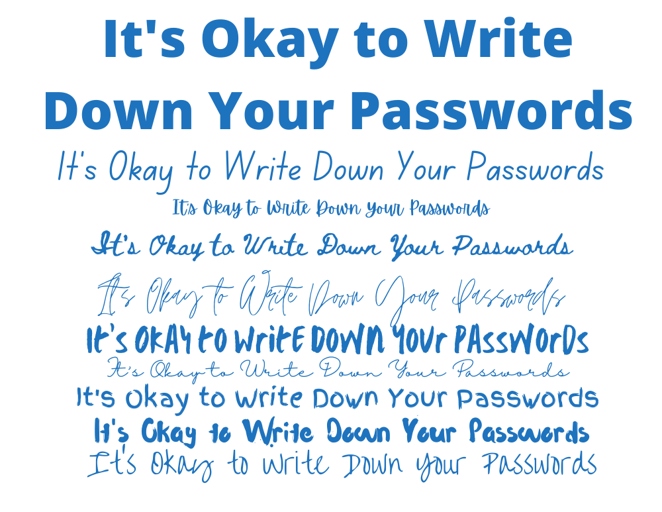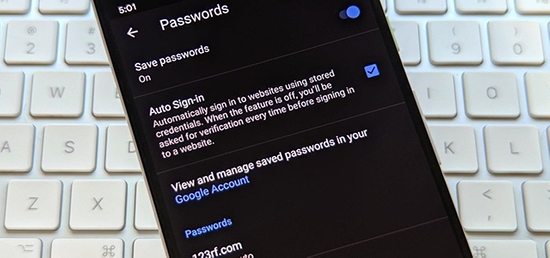In an age where data breaches are becoming more and more common, it’s important to take steps to protect your online information. One way to do this is to store your passwords offline. But what’s the best way to do this? In this article, we’ll explore some of the different options for storing your passwords offline so that you can choose the best method for your needs.
Should I Write Down My Passwords?
On the plus side, writing down your passwords can help you remember them better and make them more secure. On the downside, if your password list falls into the wrong hands, it could be used to gain access to your accounts. There are many benefits to writing down your passwords, as well as a few risks.
Here are a few things to consider when deciding whether or not to write down your passwords:
The security of your password list: If you keep your password list in a secure location, such as a locked drawer or safe, the risk of someone finding and using it is much lower.
Just be sure to store the list in a secure location. How well you remember your passwords: If you have a lot of passwords and find it difficult to remember them all, writing them down can be a helpful way to keep track of them.

The sensitivity of the information you are protecting: If the information you are protecting with your passwords is not particularly sensitive, the risk of writing them down is lower. However, if the information is sensitive, such as financial information or medical records, you should take extra care to keep your passwords secure.
In the end, whether or not to write down your passwords is a personal decision. Consider the risks and benefits carefully before making a decision.
Tips for Those Who Store Passwords on Paper
There are a few different ways that people tend to store their passwords offline. Some people write them down on a piece of paper and keep them in a safe place, while others use a password manager program to store them securely.
Second, consider using a code or cipher to encrypt your passwords so that even if someone does find your paper, they won’t be able to read them. If you choose to write your passwords down on paper, there are a few things you should keep in mind. First, make sure that the piece of paper is well hidden and not in a place where someone could easily find it.
Here are a few tips to help you keep your passwords safe if you choose to store them on paper:

• Make sure the paper is well hidden and not in a place where someone could easily find it.
• Use a code or cipher to encrypt your passwords so that even if someone does find your paper, they won’t be able to read them.
• Write down each password in a different location so that if one piece of paper is lost or stolen, your other passwords will still be safe.
• Review your passwords regularly to make sure they are still strong and secure.
Offline Options That Don’t Involve Paper
Another option is to store your passwords in a text file on your computer that is encrypted with a tool like 7-Zip or GPG. One option is to use a password manager program that stores your passwords in an encrypted format on your computer. Finally, you can also store your passwords in a physical safe that is kept in a secure location. There are a few different ways that you can store your passwords offline without using paper.
Frequently Asked Questions
1. How can I store my passwords offline?
There are a few different ways to store your passwords offline. One way is to use a password manager, which is a software that helps you generate, store, and manage your passwords. Another way is to use a physical notebook or sheet of paper to write down your passwords.
2. What are the benefits of storing my passwords offline?
There are a few benefits to storing your passwords offline. One benefit is that it helps to protect your passwords from being hacked. Another benefit is that it can help you to remember your passwords more easily.
3. What are the risks of storing my passwords offline?
There are a few risks associated with storing your passwords offline. One risk is that if you lose your physical notebook or sheet of paper, your passwords could be lost forever. Another risk is that someone could find your notebook or sheet of paper and gain access to your passwords.
4. How can I protect my passwords if I store them offline?
There are a few different ways to protect your passwords if you store them offline. One way is to encrypt your passwords using a software or online service. Another way is to store your passwords in a physical safe or lockbox.
5. What are the best ways to store my passwords offline?
There are a few different ways to store your passwords offline. One way is to use a password manager, which is a software that helps you generate, store, and manage your passwords. Another way is to use a physical notebook or sheet of paper to write down your passwords.
Final thoughts
There are many ways to store your passwords offline, but the best way is to use a password manager. Password managers are software programs that help you create and manage your passwords. They can generate strong passwords for you, store them in an encrypted database, and autofill them when you need them.
